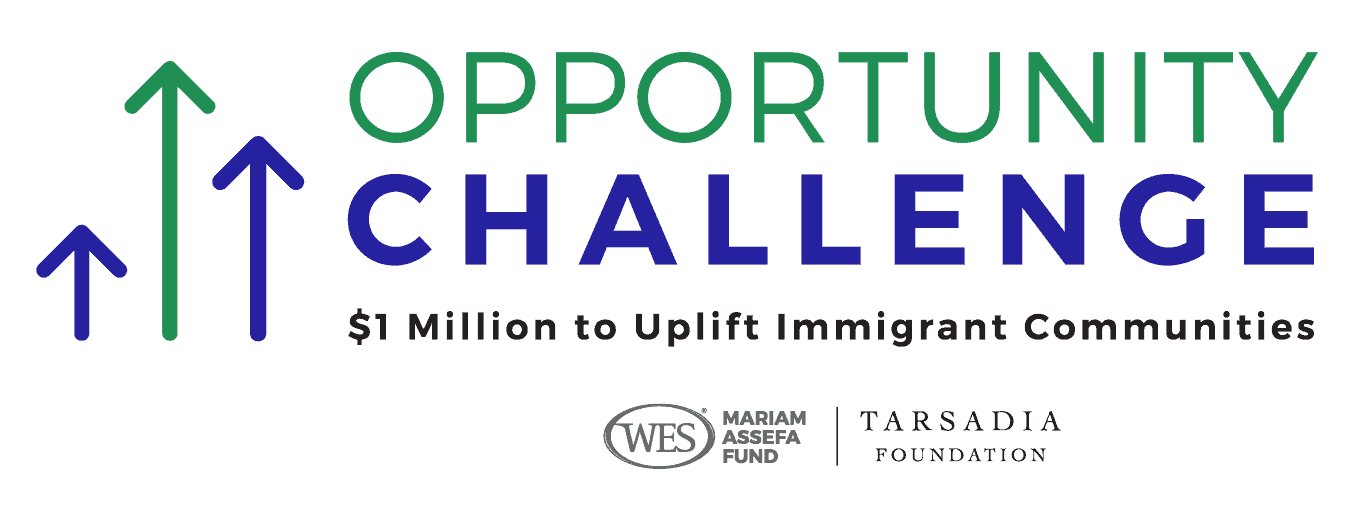The Opportunity Challenge: $1 Million to Uplift Immigrant Communities launched in March 2020 as a joint grantmaking initiative of the WES Mariam Assefa Fund and the Tarsadia Foundation. As two funders committed to unlocking potential for all immigrants and refugees, the WES Mariam Assefa Fund and the Tarsadia Foundation sought solutions to support the success of immigrants and refugees and their communities across the U.S. We were humbled to receive 470 applications from 42 states across the country and over 200 individual communities.
In September 2020, we announced the 12 awardees of the Opportunity Challenge. These organizations are driving impactful community-led solutions that support immigrants and refugees in achieving their goals. The quality and quantity of impressive proposals led us to double our financial commitment from an initially planned $1 million to $2 million. This sum also included awards to eight semi-finalists. Learn about the semi-finalists here.
Meet the Awardees
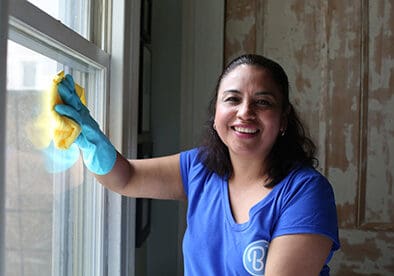
Center for Family Life/SCO Family of Services
Center for Family Life/SCO Family of Services is a neighborhood-based family and social services organization with deep roots in Sunset Park, Brooklyn. CFL’s Cooperative Development Program has been incubating immigrant-led worker cooperatives since 2006. For the past four years, CFL has been developing Brightly®, a franchise of worker-owned, women-run, community-led cooperatives that offer eco-friendly residential and commercial cleaning services.
Project: Expand Brightly, the first worker cooperative franchise in the United States, providing a more sustainable path to scale financially successful worker cooperatives in low-income and immigrant communities.
“We are thrilled about the opportunity to expand the Brightly cooperative model outside of New York City. It is our goal to foster worker-ownership and asset and leadership development across the country, using a proven model that uplifts immigrant communities.”
Maru Bautista, Director, Cooperative Development Program, Center for Family Life/SCO Family of Services
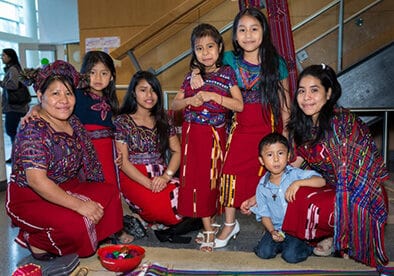
Centreville Immigration Forum
Centreville Immigration Forum’s mission is to implement sustainable programs that provide immigrants in need with the means to improve their lives and become more integrated into the community; improve communication and cooperation among groups serving immigrants; and build community recognition of strength in diversity.
Project: Mujeres: Triangulo Ixil is a community-led effort that regularly convenes low-income immigrant women to identify needs, provide mutual support, learn about community resources, and advocate for opportunities—including for jobs, education, child care, and physical and mental well-being.
“We have seen women—the majority of whom are from Guatemala and are Ixil Maya people— increasingly interested in taking on leadership roles, finding employment, and improving their skills through our programs. But we hear from them that the programs are not a good fit as is, because they were originally designed by and for those who seek day labor, most of whom are young men. This program will support women in developing what will meet their needs so they can thrive in the community.”
Miguel Carpizo-Ituarte, Executive Director, Centreville Immigration Forum
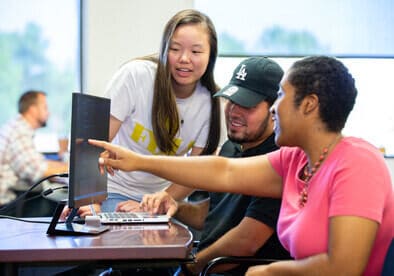
Code the Dream
Code the Dream offers free intensive training in software development to people from diverse low-income backgrounds. Code the Dream seeks to create a unique win-win where coders gain real experience building apps that make the world a better place, and then use that experience to launch new careers with enormous opportunities for themselves, their families, and their communities.
Project: Scale Code the Dream’s proven model of improving economic mobility for immigrants and refugees seeking to unleash their own potential and make a better life for themselves and their communities.
“As a young person with DACA who couldn’t afford college, I was stuck. But Code the Dream offered me a win-win—a chance to launch a career where I could support my family and use my talents to give back. In the last year I’ve built apps to organize free rides for seniors, provide support to migrant farmworkers, and facilitate meal deliveries to thousands of low-income children cut off from free school lunches by the COVID-19 pandemic. Imagine what we could do together if everyone had this chance!”
Andrea Hernandez, Code the Dream graduate and current mentor
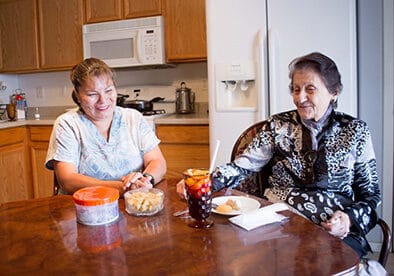
Encuentro
Encuentro’s mission is to transform New Mexico into a thriving community for all by engaging with Latino immigrant families in educational and career development opportunities that build skills for economic and social justice.
Project: Encuentro’s Home Health Aid program uses education, self-employment, and leadership development to address the economic integration barriers that Latinx immigrants face in New Mexico’s home health industry.
“Encuentro is leading a more just vision for elder care by harnessing the power of collaborations to create a community-driven approach that offers desirable alternatives and challenges the dominant, profit-driven home health industry. Our program is worker-centered and honors the knowledge, experience, and passion of immigrant caregivers as the starting point for creating dignified work opportunities. Through partnerships at a local and national level, Encuentro is supporting immigrant caregivers to build their collective capital and lead a transformation for elders and caregivers alike.”
Andrea Plaza, Executive Director, Encuentro
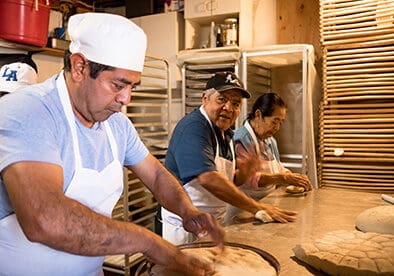
Inclusive Action for the City
Inclusive Action for the City addresses the root causes of poverty by merging good urban policy with sound economic development initiatives that reduce barriers, increase opportunity, strengthen local economies, and empower low-income residents and entrepreneurs.
Project: The Semi’a Fund is a micro-loan program that provides low-income entrepreneurs—many of whom are street vendors in the informal economy—with access to low-interest capital and individualized coaching to help them grow their businesses.
“Our advocacy and economic development work focuses on changing systems that have left out low-income communities of color for generations. In Los Angeles, Black and Mexican households have about 1 percent of the net worth of their white counterparts! This inequality is a result of intentional policies but also finance systems that perpetuate this divide. Our Semi’a Fund intends to be a bold, unapologetic microfinance initiative that serves street vendors and other entrepreneurs who need capital. As we provide resources to our community’s entrepreneurs, we are also seeking to lift up our experiences to change the systems that require us to do this work to begin with. We see this work not just as a ‘program,’ but as part of a movement for economic justice that we and so many allies are working for.”
Rudy Espinoza, Executive Director, Inclusive Action for the City
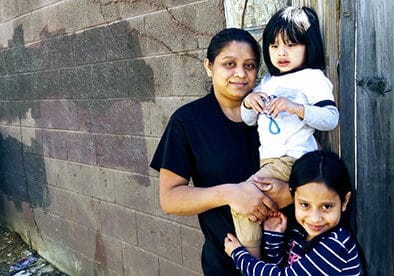
Many Languages One Voice (MLOV)
The mission of Many Languages One Voice (MLOV) is to foster leadership and provide tools for greater civic participation Washington, D.C.’s of immigrant communities of color where English is not the primary language.
Project: Launch the Birth to Three (B3) campaign to improve economic mobility for single mothers and families by re-envisioning the child care system within immigrant and refugee communities.
“In response to the pandemic, we established a neighborhood childcare pod for immigrant families called the Brightwood Babies and Mamas. Utilizing a mutual aid model, we provided food, diapers, childcare advice, and emotional support to over 30 mothers and their children. This innovative solution provides opportunities for economic stability and advancement to single mothers and childcare providers during this time of crisis. As the economy recovers, we hope to establish childcare pods as the go-to childcare network for immigrant and refugee families across DC.”
Megan Macraeg, B3 Program Manager, MLOV
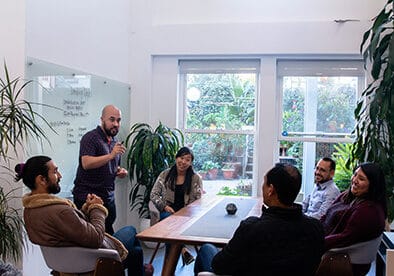
Mission Asset Fund
For the last 13 years, Mission Asset Fund (MAF) has revolutionized the asset building field by trailblazing responsible financial programs that help immigrant communities become visible, active, and successful in the U.S. financial marketplace.
Project: Support MAF’s Lending Circles program, which uplifts the strengths and innovations of low- income and immigrant communities—the true experts—to design programs that transform everyday practices into credit-building opportunities. In partnership with a national network of non-profits, MAF brings to bear the best of finance and technology to help immigrant communities reach their full financial potential.
“Immigrants have a strong tradition of coming together and helping each other by forming lending circles. Known as tandas in Mexico, susus in Africa, lun-hui in China, and paluwagan in the Philippines–and by many other names throughout the world–this informal borrowing practice helps people meet immediate needs. MAF’s Lending Circles transforms the time-honored global practice of people coming together to lend and borrow money into a force for good.”
José Quiñonez, Founder & CEO
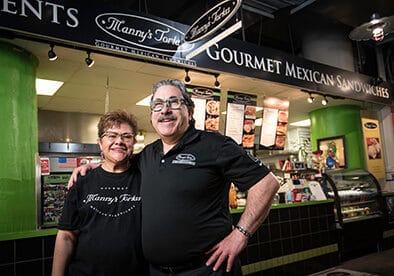
Neighborhood Development Center
Neighborhood Development Center (NDC) supports entrepreneurs and small businesses at all stages of development. Through a variety of services, NDC seeks to support sustainable, long-lasting businesses.
Project: Empower immigrant entrepreneurs in the Twin Cities to transform their neighborhood economies through comprehensive and culturally competent entrepreneur training, lending, technical assistance, and small business incubators.
“When we meet an immigrant from Ethiopia, Mexico, or Laos, we don’t see the person currently pushing a broom as a janitor struggling to speak English. We see a person who can own that broom and the entire janitorial company, we see the person who can employ five or ten of their neighbors, who can be a role model of entrepreneurship to their kids. We see them as a powerful catalyst for neighborhood revitalization.”
Mihailo “Mike” Temali, Founder & CEO, NDC
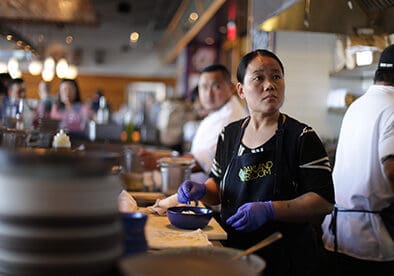
Oakland Bloom
Oakland Bloom seeks to advance economic equity in Oakland by providing food entrepreneurship training, income-generating opportunities, and hands-on support to aspiring chef entrepreneurs from poor and working-class immigrant and refugee communities seeking to launch their own food businesses.
Project: A first of its kind cooperatively run commissary kitchen, marketplace, pop-up, and (eventual) community gathering space that showcases and builds economic opportunities for immigrants, refugees, and people of color to develop, pivot, and (re)launch their food businesses in community with one another, alongside technical assistance and additional resources to help businesses adapt to an uncertain food market during COVID-19.
“The impact of COVID-19 on the food industry has forced a fundamental shift that has been a long time coming in a notoriously exclusive and extractive industry with high barriers to entry for many poor and working-class immigrant, refugee, and PoC communities. Although we’re living in the uncertain period of COVID-19, we see this as an opportunity to dream beyond what we understand is possible, and dare to envision and build towards new economic models for food businesses—non-extractive models that uplift refugee and immigrant communities, and that are grounded in equitable ownership and decision-making, local food systems, shared buying power, collaborative market opportunities, and authentic relationships. We see our cooperative projects as a blueprint for moving the food industry beyond the status quo, in a way that puts power back into the hands of the people and our refugee, immigrant, and PoC communities.”
Seanathan Chow, Executive Director, Oakland Bloom
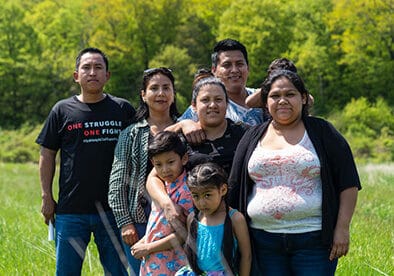
Pioneer Valley Workers Center
The Pioneer Valley Workers Center (PVWC) builds power with low-wage and immigrant workers throughout Western Massachusetts and beyond. PVWC’s worker members organize to build community and win real change in the lives of working people.
Project: Support Vida Cooperativa, which unites, trains, and supports PVWC’s immigrant worker members in launching and leading interdependent worker-owned cooperative businesses, anchored by its 4.5-acre member-led cooperative farm.
“Immigrant workers need cooperatives because we are often exploited at work, discriminated against, or mistreated by our bosses, and many times they steal our wages. We deserve a dignified life. Owning a cooperative business changes one’s life, it gives us equality with others in our workplace, and there is no abuse. I know that another world is possible, a world with dignity and justicia, when we own our own cooperative businesses.”
Claudia Rosales, a co-owner of Riquezas del Campo farm
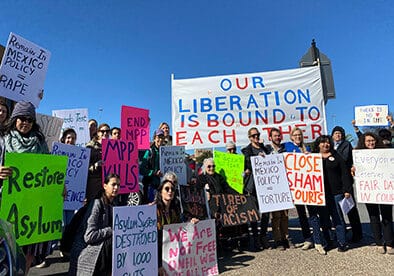
Sueños Sin Fronteras de Tejas
Sueños Sin Fronteras de Tejas (SSFTX) is a Latinx, Black, and women of color-led collective providing health and healing support and access for refugee, asylum-seeking, immigrant, and undocumented womxn and families through direct support, resources, and referrals.
Project: Create community-based pathways toward liberation and empowerment for immigrant women and families through health advocacy in South Texas and across the country.
“We believe that serving the needs of immigrant womxn and their children is not an act of charity, but a matter of solidarity and reproductive justice. An integral component of reproductive justice is to ensure that all womxn regardless of immigration status are guaranteed access to a safe and healthy environment, especially amid the current COVID-19 pandemic.”
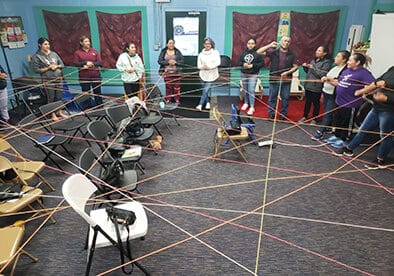
Suma
Suma, a new nonprofit based in Portland, OR, is building an inclusive technology economy with and for immigrants, refugees, and other frontline communities.
Project: Support Suma’s work to create platforms for digital organizing, enterprise, and justice.
“We envision a day when frontline community data is an organized resource, and when it can be used to overcome poverty and build political power.”
Alan Hipólito, Executive Director
Stay in Touch
Thank you for your interest in the WES Mariam Assefa Fund. We’ll share updates on the Fund’s efforts, what we’re learning, and opportunities through our email list.
